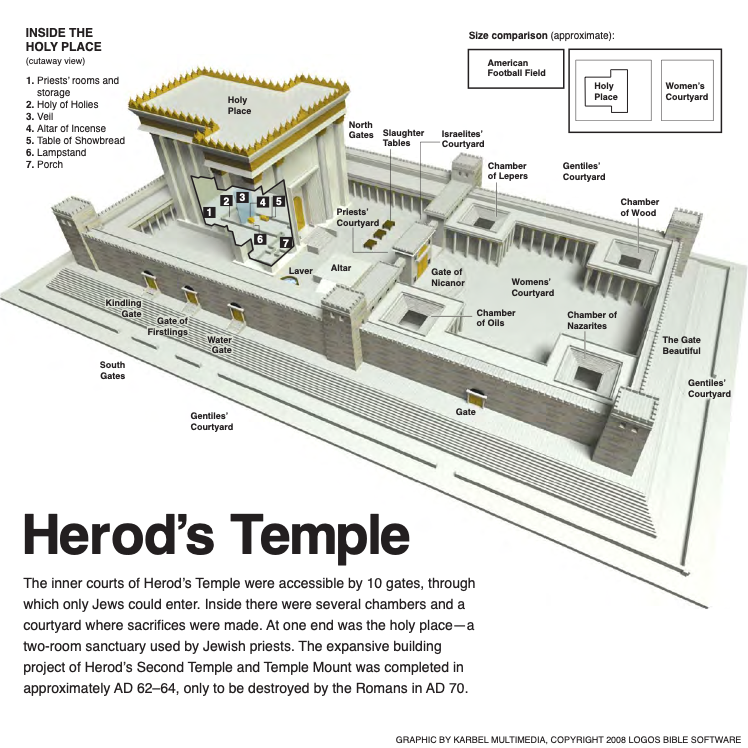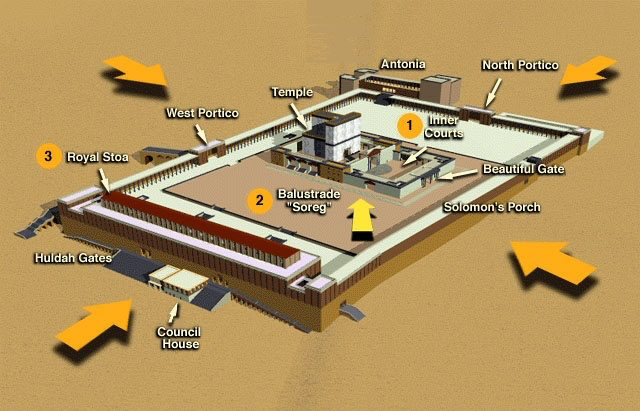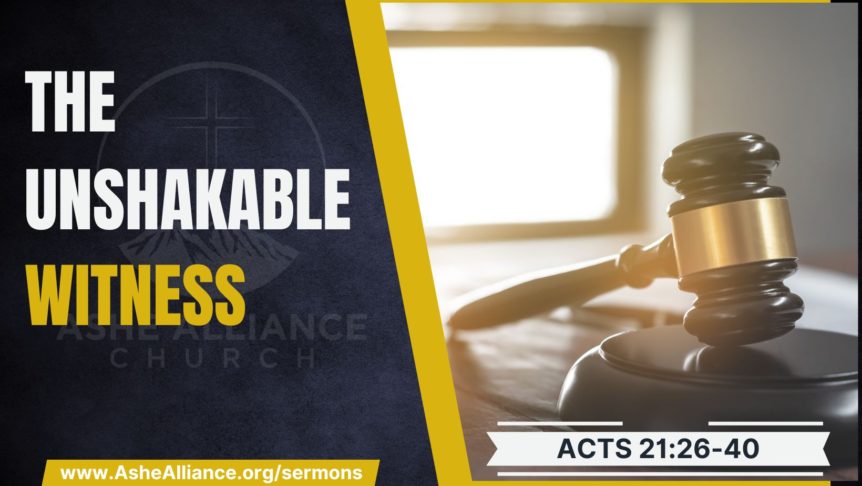LISTEN
WATCH
READ
Nate Roten / Acts Series / Acts 21:26–40
Main Idea
The overarching testimony of scripture is true and reliable.
How many of you like courtroom dramas? Kelly and I used to watch Law and Order when we were first married. I get sucked into the drama of the unfolding evidence, the high stakes, and how many times, the entire case is built around one key witness who usually needs police protection to stay alive. But in the end, the testimony and multiple pieces of evidence all come together to convict the guilty and clear the innocent.
Passage
Acts 21:27–40 CSB
When the seven days were nearly over, some Jews from the province of Asia saw him in the temple, stirred up the whole crowd, and seized him, shouting, “Fellow Israelites, help! This is the man who teaches everyone everywhere against our people, our law, and this place. What’s more, he also brought Greeks into the temple and has defiled this holy place.” For they had previously seen Trophimus the Ephesian in the city with him, and they supposed that Paul had brought him into the temple.
The whole city was stirred up, and the people rushed together. They seized Paul, dragged him out of the temple, and at once the gates were shut.
As they were trying to kill him, word went up to the commander of the regiment that all Jerusalem was in chaos. Taking along soldiers and centurions, he immediately ran down to them. Seeing the commander and the soldiers, they stopped beating Paul. Then the commander approached, took him into custody, and ordered him to be bound with two chains. He asked who he was and what he had done. Some in the crowd were shouting one thing and some another. Since he was not able to get reliable information because of the uproar, he ordered him to be taken into the barracks. When Paul got to the steps, he had to be carried by the soldiers because of the violence of the crowd, for the mass of people followed, yelling, “Get rid of him!”
As he was about to be brought into the barracks, Paul said to the commander, “Am I allowed to say something to you?”
He replied, “You know how to speak Greek? Aren’t you the Egyptian who started a revolt some time ago and led four thousand men of the Assassins into the wilderness?”
Paul said, “I am a Jewish man from Tarsus of Cilicia, a citizen of an important city. Now I ask you, let me speak to the people.”
After he had given permission, Paul stood on the steps and motioned with his hand to the people. When there was a great hush, he addressed them in Aramaic:
Recap
The Holy Spirit warned Paul that affliction and imprisonment awaited in Jerusalem.
Paul traveled from port to port down the western coast of the Roman province of Asia.
He arrived in Tyre and spent a week with the believers who warned him not to go to Jerusalem.
Then he traveled to Caesarea, where the believers (and even his beloved traveling companion – Luke) told him not to go to Jerusalem. Philip’s daughters prophesied over him, and Agabus prophesied over him using his belt as a visual demonstration.
All the while, Paul counted his life as nothing but sought only to finish his given mission.
He met with the Jerusalem Elders (including James) and agreed to sidestep the Jewish opposition by adhering to a Jewish purification vow.
Opposition from Jews in Asia
While in Asia, Paul wanted to arrive in Jerusalem in time for Pentecost.
Luke doesn’t confirm if he did, but it would make sense that he did, given that the Jews from Asia were there (the Jewish festival of Pentecost was a pilgrimage festival), and there were many Roman soldiers stationed there (which was SOP for large festivals to keep the peace).
Paul has traveled to the Temple to announce the final days of the purification vow.

As he did this, Jews from Asia recognized him and did four things.
1. They stirred up the crowd
2. They seized Paul
3. They called on the help of the Israelite community
4. They made two false accusations:
a. Paul teaches everyone things against the Jews, the Jewish law, and the Jewish temple.
b. Paul defiled the temple by bringing in at least one of his Gentile friends, Trophimus (which was punishable by death).
It’s ironic that the Jews slander Paul, saying he is speaking against the Jewish law, while he is finishing a vow!
Murderous uproar
As in Ephesus, the entire city was stirred up (set in motion to instigate), and a mob began to form.
- They rushed at Paul (rose up against him in power).
- They seized Paul (grasping in violence).
- They dragged Paul out of the Temple (likely via the Nicanor Gate) to kill him.
We are called to look and act differently than the world, yet these Jews, who were God’s chosen people to reflect His glory into His creation, were just like the Ephesians. They formed a mob, incited violence, and wanted blood. It is ironic that they are there to celebrate the festival of Pentecost, which celebrates the giving of the Law to Moses at Mt. Sinai, and they were breaking the law at every turn and fighting against the message of the one who fulfilled it!
Fulfillment of prophecy
Agabus said this would happen, but some say Agabus was incorrect.
Was he? What implications exist if he was wrong? Does this bring scripture’s reliability into question?
Some say Agabus was wrong because the Romans put Paul in chains, while Agabus said that the Jews would bind Paul and deliver him to the Gentiles (aka – the Romans). This has some validity because it was the Romans who put chains on Paul, and Luke doesn’t tell us that the Jews tied Paul up. So, is it true?
I can see how it can be misunderstood that way, but no. Agabus spoke, saying, “Thus says the Lord.” And if you look a bit closer, you can see that Paul was likely bound before he was given over to the Romans. While Luke doesn’t explicitly say, “The Jews bound Paul according to Agabus’ prophecy,” he did explain how they seized him twice (v. 27 & v. 30). Maybe he had wiggled his way free? The second time, the entire mob had seized him, and they dragged him out of the Temple. In Greek, according to the BDAG, the implication of using the word ‘dragged’ here is that “the object being moved is incapable of propelling itself.” It sure seems like Paul was bound and being dragged from the Temple so they could kill him. Wouldn’t it be easier to kill someone if they were immobile?
There is no struggle in believing that the word of the Lord remains faithful and trustworthy.
Roman intervention
As the mob raged, word of the disturbance reached the Roman Commander stationed at the Temple (in the ESV, he is called the Tribune of the Cohort).
The soldiers were stationed at the Tower of Antonia at the NW corner of the Temple, which was put there by Herod the Great for this reason.

A Tribune was a Commander of up to 1,000 soldiers. This is why I said there were likely enhanced security measures for the feast of Pentecost. This man is later named as Claudius Lysias.
There were at least 200 summoned to attend to the situation because Claudius took “soldiers and centurions.” A Centurion was in charge of 100 soldiers, and more than one centurion was called upon. This would have been quite an intimidating scene!
As the soldiers marched toward the mob, they stopped pummeling Paul. I would have, too.
Here, Paul is put in Roman chains and taken into custody (seizing him more safely, but the same word in the Greek)
Romans vs. Jewish mob
Next, Luke gives us a snapshot of just how vicious this mob was.
Once Paul was in their custody, Claudius wanted answers. He wanted to know what on earth was going on.
Voices in the mob began to roar, but they weren’t telling the same story. “Some were shouting one thing and some another.” None of what he was getting was reliable. He could not hear others because of the commotion, but then, it started to grow violent again. They cried out, “Get rid of him!” And they didn’t just mean they wanted Paul expelled from the city. They wanted him dead.
This mob was eerily similar to another one that formed roughly 25 years ago, who cried out something similar: “Crucify him!”
It was getting so bad that the soldiers had to physically carry Paul away from the mob into the barracks.
Clarifying Paul’s identity
Paul keeps his manners and decorum and addresses Claudius with respect.
Claudius also has false assumptions about Paul. He thinks he is a previous Egyptian false prophet spoken about by Josephus – (Josephus, Antiquities 20.169–72). This rebel led a group of assassins called ‘dagger men’ to the Mount of Olives to infiltrate and conquer the city. The Roman Governor Felix thwarted the attack, killed 400, and captured 200 more, but the rebel leader got away. This happened within a few years of this event, if not in the same year.
It’s worth noting here that Claudius acted with more godly virtue than the Jews, who claimed to be God’s representatives. The Jews made faulty assumptions with evil motives to capture and kill Paul. Claudius made false assumptions and was willing to be corrected in light of the truth.
You see, Claudius was impressed that Paul addressed him in Greek. That gave Paul immediate credibility, as did his place of origin: Tarsus of Cilicia – an important city.” Why did Paul say it that way? Because Tarsus was known for its intellectual pursuits. That means Paul was not just a mindless rebel. He was not what the mob outside was portraying him to be. He was an educated man with Greek knowledge and posture. And this was before he knew Paul was a Roman citizen!
A Roman Commander in charge of 1,000 hardened soldiers showed more humility than a city full of ‘God’s covenant people.’
Paul’s bold request
“Let me speak to the people.”
I think what he was really trying to say was:
- Let me shine light into the darkness.
- Let my testimony be used to change hearts.
- Let my love for my people be a dim reflection of the love God has for them.
- Let the gospel go forth and not return void.
- Let me accomplish the mission that I was given.
Takeaway
Paul is an amazing witness for Christ who consistently exudes boldness, compassion, and confidence in Christ. He has proven to be a bold witness, but the unshakable witness today is the witness of scripture.
This passage isn’t one-sided. I struggled this week to boil this down into the singular main idea – the core idea that I can summarize and give you to chew on this week, but there isn’t a singular idea. Many combine their voices to show how the overarching testimony of scripture rings true and reliable.
1. God is who He says He is: God’s sovereign plan plays out as He had said to Paul through the Holy Spirit and through prophecies of Philip’s daughters and Agabus.
2. Paul represents who we are in Christ and represents the Kingdom well:
a. he doesn’t fight back
b. he respects God-ordained authority
c. he loves his Jewish family enough to proclaim the gospel, even though they just tried to kill him
3. The fallenness of man rejects the light of the gospel – Romans 3:9-20
4. Claudius shows the Imago Dei and how God’s law is written on our hearts – Romans 2:14-15
And as we will see next week, the gospel will go forth and bring attention to the only one worthy of it: Jesus Christ.
